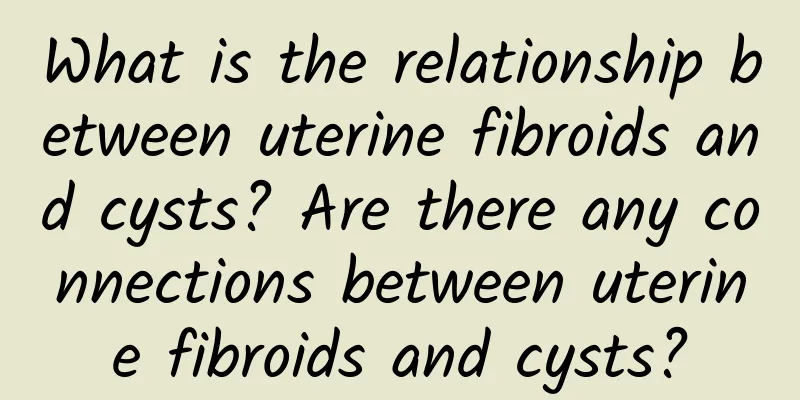Who are the most susceptible groups to uterine fibroids? Do patients with uterine fibroids feel cold?

|
What is uterine fibroid? Are patients with uterine fibroids afraid of cold? I believe these are questions that many women are concerned about. Uterine fibroids, also known as uterine leiomyoma, are the most common benign tumors of the female genitalia and are generally asymptomatic. A few clinical manifestations include vaginal bleeding, menorrhagia, lower abdominal masses, or difficulty urinating. Uterine fibroids can be divided into subserosal fibroids, intramural fibroids, submucosal fibroids or cervical fibroids, broad ligament fibroids, etc. At present, uterine fibroids are more common in women aged 30-45 with strong ovarian function. After the age of 50, most fibroids shrink on their own due to the obvious decline in ovarian function. The cause of uterine fibroids is still unclear, but it is mainly caused by high estrogen levels, followed by psychological, gynecological inflammation and genetic factors. If uterine fibroids are not treated in time, as the size of the fibroids increases, it often causes infection, inflammation and even infertility, and in severe cases it can cause malignant lesions. Therefore, the treatment of uterine fibroids is imminent and there is no chance of luck. At present, the treatment of uterine fibroids mainly includes surgical treatment and drug treatment. As for whether patients with uterine fibroids are afraid of the cold, from the perspective of traditional Chinese medicine, fear of the cold is a manifestation of yang deficiency. Uterine fibroids are mainly related to kidney deficiency (including kidney yang deficiency and kidney yin deficiency) and liver depression and qi stagnation. Therefore, if the patient has uterine fibroids caused by kidney yang deficiency, it is possible to be afraid of the cold. But if the patient has symptoms of fear of the cold, it is recommended to go to the hospital, find out the cause in time, receive treatment as soon as possible, and strive to recover as soon as possible. In addition, if the patient has long-term irregular menstruation after surgery, it is recommended to go to a regular hospital for examination to eliminate the possibility of organic lesions. |
<<: What are the causes of uterine fibroids? Can multiple miscarriages also cause uterine fibroids?
>>: What are the causes of uterine fibroids?
Recommend
Common complications of irregular menstruation
Irregular menstruation is a common gynecological ...
How to treat inflammatory changes of the cervix
Inflammatory changes in the cervix are generally ...
5 major signs of premature ovarian failure, how many of them do you have?
Xiao Zhang just turned 35 this year, and both her...
How are cervical warts transmitted?
Cervical warts are a term that troubles many men ...
Treatment of uterine prolapse degree 3
For uterine prolapse of grade 3, appropriate trea...
Have you ever heard of hyperplastic vulvar leukoplakia?
Do you know about hyperplastic vulvar leukoplakia...
What is habitual miscarriage? Pay attention to these 6 aspects
If a woman has three or more miscarriages in a ro...
How to treat dysmenorrhea in daily life
Dysmenorrhea is one of many gynecological disease...
Build a physique that won’t gain weight even if you eat a lot! Nutritionist Zhang Peirong: Master the three key points to increase your basal metabolic rate
Many people have had the following doubts: "...
How to treat moderate cervical erosion? 4 most effective methods to treat moderate cervical erosion
Many women do not pay enough attention to their o...
Which method is better for treating white lesions of the vulva?
Vulvar leukoplakia is already very familiar to mo...
How long does it take to get menstruation after an abortion?
How long does it take for menstruation to come af...
Is irregular vaginal bleeding an ectopic pregnancy?
Irregular vaginal bleeding is a problem that many...
Patients with secondary amenorrhea and breast cancer should eat less fatty foods
In addition to early detection and early treatmen...
What causes irregular menstruation in women? There are four ways to prevent irregular menstruation in women
Menstruation is an important physiological charac...









